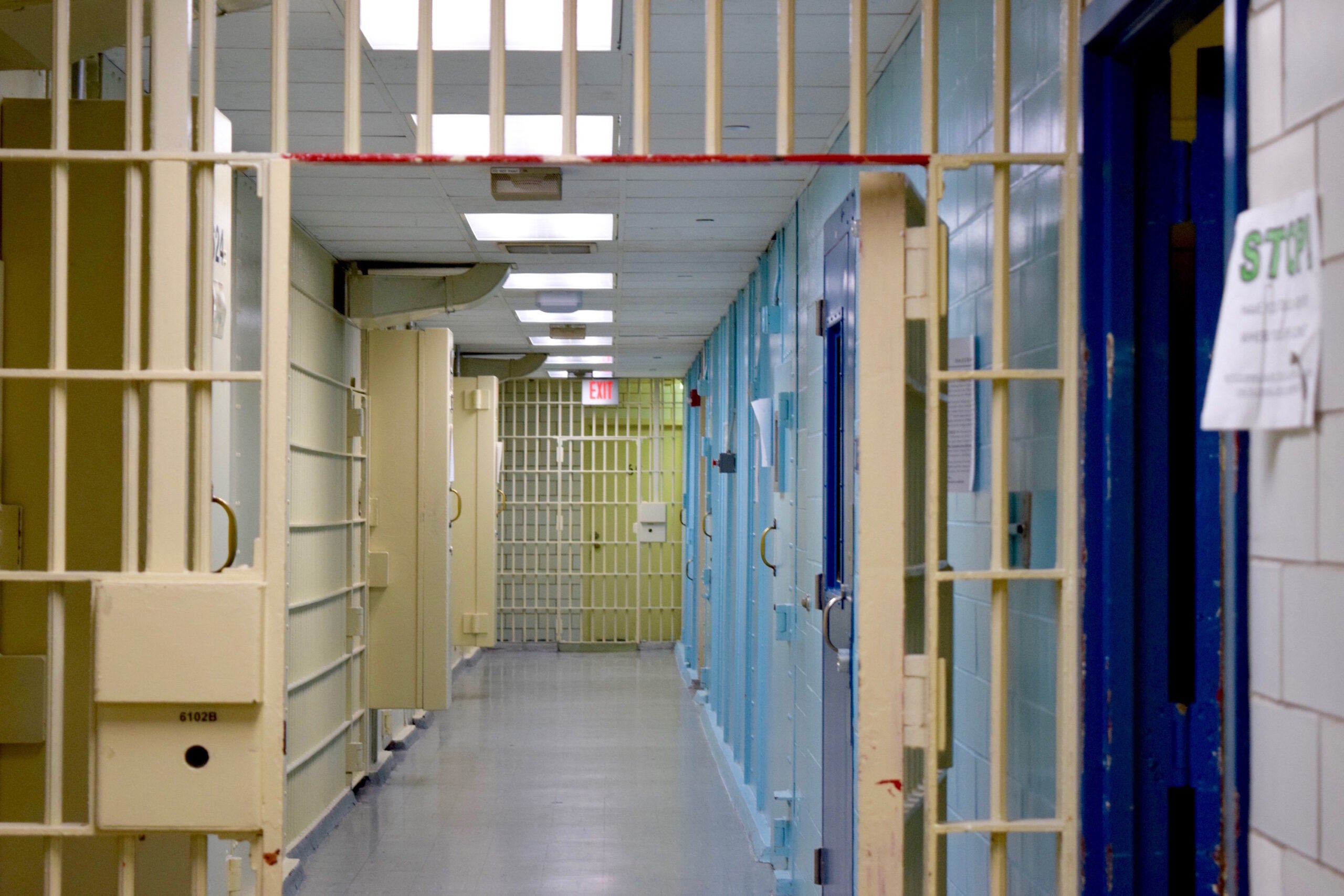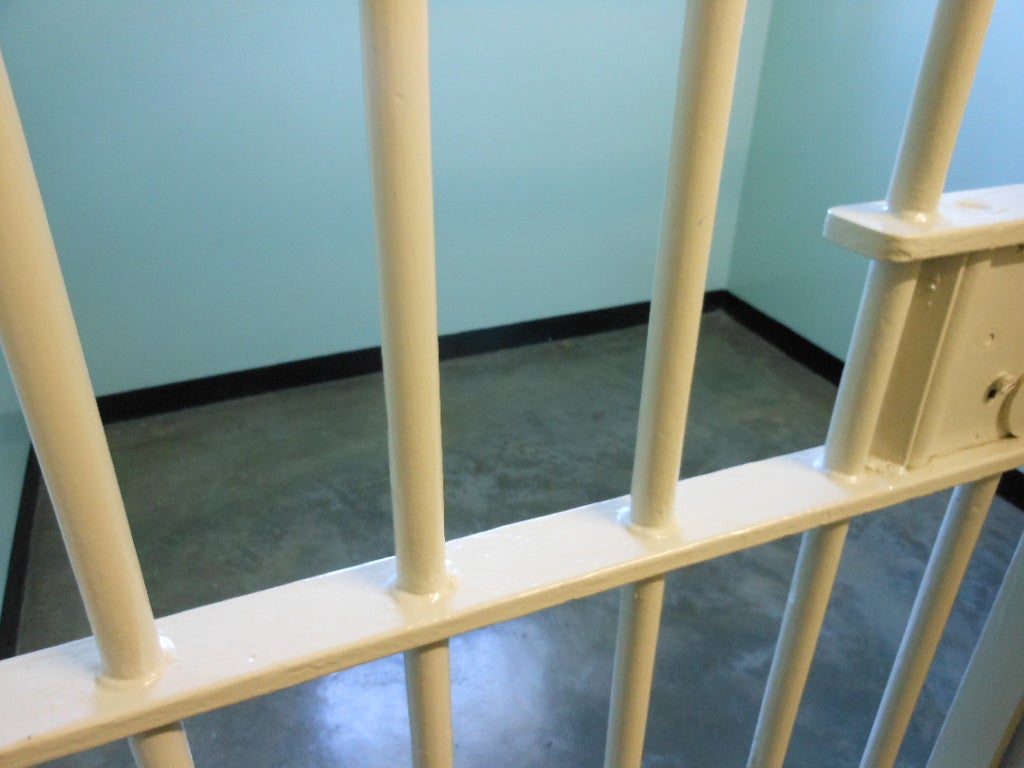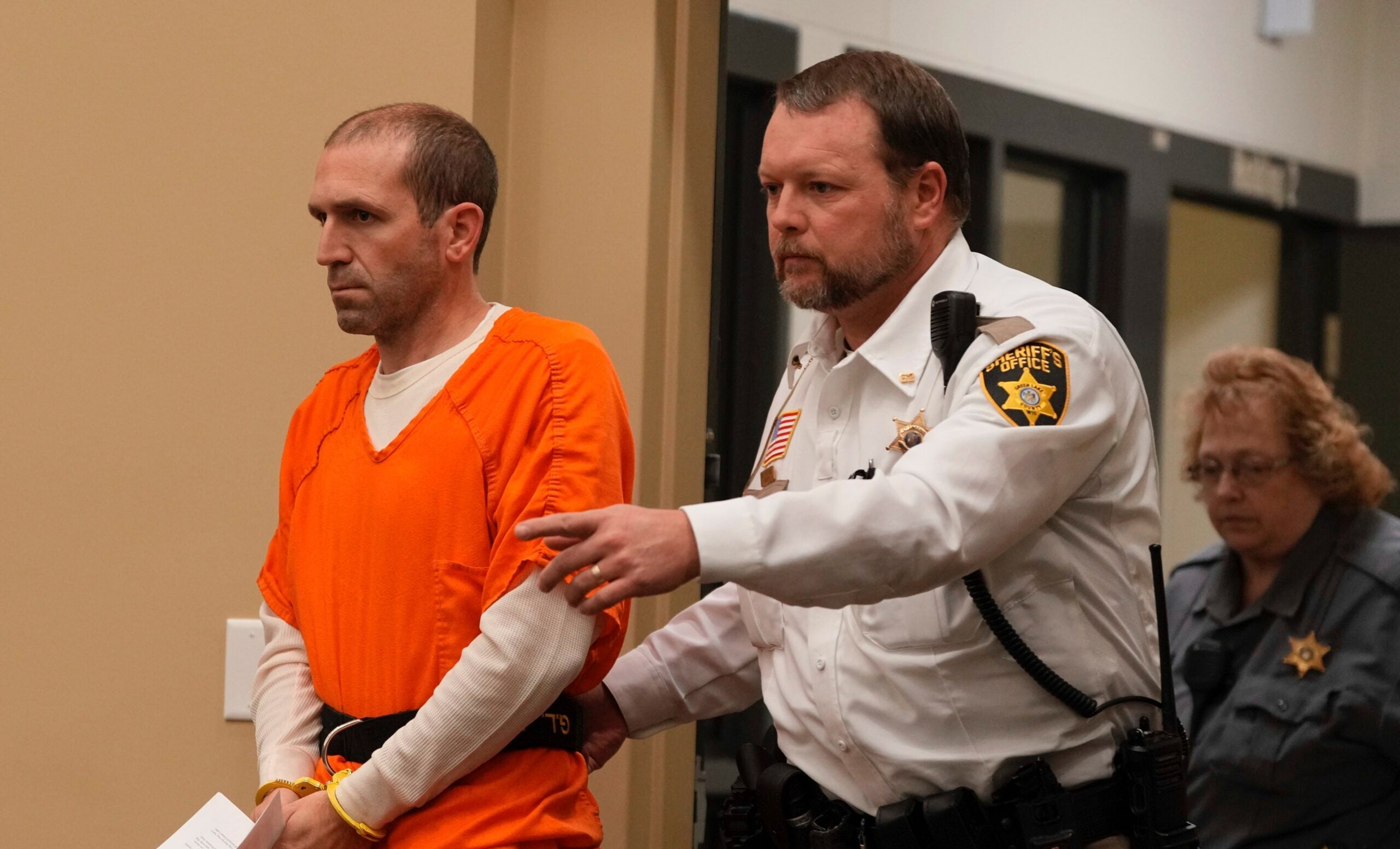Behind the walls of the Brown County Jail, hundreds of people await their fate —- innocent or guilty.
“We have individuals who have been sitting in our jail for over 721 days,” according to county executive Troy Streckenbach.
With a jail capacity of 735 adults and 15 juveniles, people are staying anywhere between one and 400 days, he recently told WPR’s “Wisconsin Today.”
News with a little more humanity
WPR’s “Wisconsin Today” newsletter keeps you connected to the state you love without feeling overwhelmed. No paywall. No agenda. No corporate filter.
“It really didn’t present itself as a major issue until the last six years,” he said.
Now, the northeastern county plans to close its downtown jail facilities and construct a new $15 million jail pod this spring at the Brown County Jail. It’s expected to be safer and more efficient for officers to operate when compared to the old downtown facility.
According to Streckenbach, the Brown County Circuit Court has a backlog of 5,000 cases, which is causing people to stay in jail for longer periods of time.
“Some of those individuals are innocent,” he said.
Last year, about 817 people were either held in the Brown County jail or on electronic monitoring devices, according to the Brown County Sheriff’s Department’s November data.
Of that, about 55 inmates were housed in surrounding counties, Kewaunee (20 miles), Outagamie (30 miles), Oconto (50 miles), Waupaca (60 miles), Door (70 miles) and Waushara (90 miles) counties.
“It is costly for us to outsource,” he said. “You have the cost of transportation to go pick them up and bring them back for the court case.”
In Brown County, crime victims are also feel the effects of the backlog.
“You have the victims who have to come back to court every time just to hear that the court has been adjourned and rescheduled,” he said.
Most of the people in the Brown County Jail have public order offenses, such as technical violations of probation and bail jumping, according to Wanda Bertram of the Prison Policy Initiative, a national nonprofit. That may present an opportunity for change.
More than 550,000 people in the U.S. are currently detained pretrial. Bertram said the Prison Policy Initiative found that the majority of people staying in jail are unable to afford bail.
As a result, people will often plead guilty to get out of jail.
“You’re supposed to be able to pay so that you can leave, but have an incentive to return to court,” she said. “That’s not how bail works today.”
Prison Policy Initiative research shows that some states, such as New York, are decarcerating their jails. Betram said the state no longer incarcerates people for technical violations of their probation.
As a result, jail populations are declining.
According to Streckenbach, Brown County is one of several counties feeling overwhelmed by case backlogs. Other counties include Waukesha, Outagamie and Florence.
“We’re about to spend another $15 million to build another jail pod,” he said. “We firmly believe it’s a direct reflection of the underfunding for Brown County.”
District attorneys in Brown County recently wrote a publication for the Wisconsin Counties Association, outlining the stress within the local judicial system. The association is now asking for $70 million in state funding to support counties.
“We’re asking the state to consider helping us to address this large backlog, whether it’s short term or long term,” he said.
How judges are allocated to counties is another issue on the county executive’s mind.
For example, Brown County has eight judges per 34,000 individuals and 13 Assistant District Attorneys per 21,000 individuals. Milwaukee County has 47 judges per 19,000 individuals and 128 Assistant District Attorneys per 7,000 individuals.
Streckenbach said that adding two judges to Brown County would reduce the 5,000 case backlog and potentially eliminate the need for additional jail pods.
“In the end, local taxpayers are fronting the cost to the state system that’s not operating efficiently,” he said.
Wisconsin Public Radio, © Copyright 2025, Board of Regents of the University of Wisconsin System and Wisconsin Educational Communications Board.







